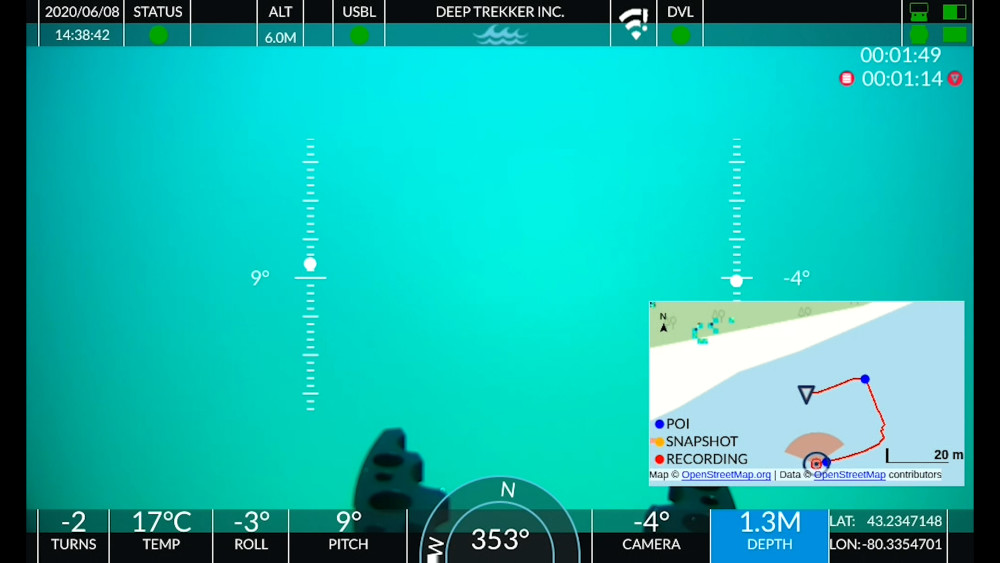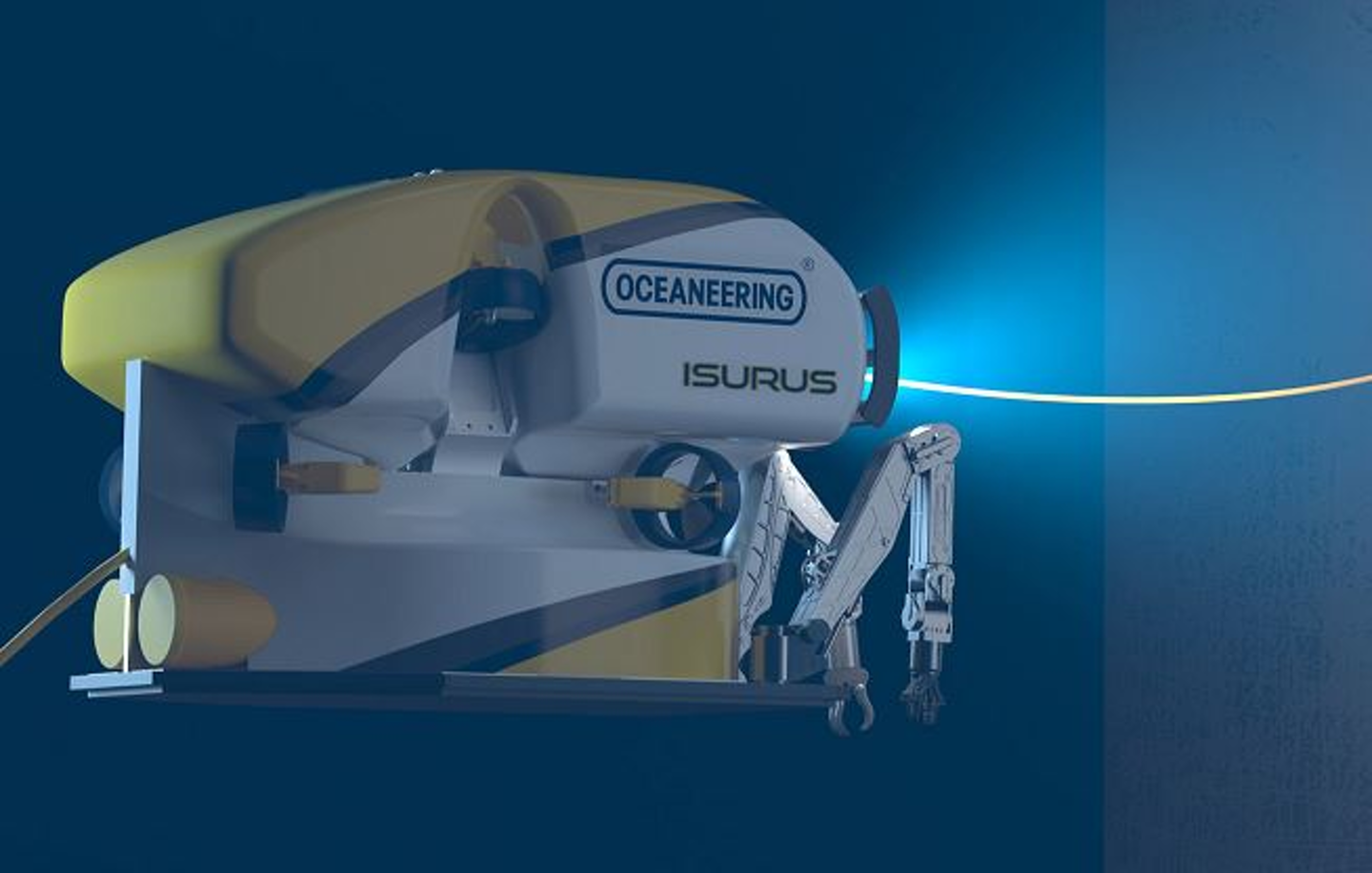Home › Forums › ROV › ROV Rookie Corner › Disappointment !!!!
- This topic has 8 replies, 8 voices, and was last updated 15 years, 1 month ago by
Toon.
-
AuthorPosts
-
May 22, 2009 at 1:45 pm #2488
trehoret
ParticipantHey all,
This is my first post here.
Well, where do I start, I have spent most of the day reading on this forum (sorry boss 😆 ) about newbies trying to get jobs as ROV pilot/tech , and what a let down for me …
Basically I found out about this job recently, and got myself really excited about getting out of my well-paid but boring and do something that i would really enjoy … after 7 years ( I am 30 ) of being a software engineer, I have to say that I find it harder and harder to get out of bed , get my 2 buses and 2 trains for an hour and a half to get to work where I hate the atmosphere, no excitement whatsoever …
So after finding out about this ROV job, I started getting in contact with all the schools on the uk, and starting to make a decision as per which I should choose, and sounds the most professional.
Great, I am finally going to have a job that I can enjoy, spend time in a workshop and/or flying a ROV … not in a bl**dy office staring at my computer screen all day…
And then I find this forum, and I have to say thank you for the eye opener. So right now i am quite disappointed in a way, glad that I am not going to have to get a loan to pay for £5,000 course in another way.
Well, i guess I am now going to spend the weekend re-doing my CV, and flooding it to recruitment agencies and companies begging for a trainee job.
Before i get fired at, my motivation is not to earn loads of money after a 3 week course, but i really need a career change, I love travelling, keen scuba diver and DIYer , and really would see being a ROV pilot/tech as a dream job.
Personally, an ideal and dream path would be for me to be a trainee, gain some experience, and then use this experience to be a ROV pilot/tech for marine biology research projects/documentaries…btw, how do you pronounce it? R.O.V or rove ? (sorry haven’t actually spoken to anyone competent yet …)
Right, so it sounds like I need to gain gain knowledge if I want a job as a trainee amongst the 10 million trainees that seem to be out there …
Like I said I am more of a software engineer, small electronics, and HF telcos…Anyone know of a good school/evening course where I could gain knowledge in hydraulics in the south of the UK ?
Cheers,
Jim.May 22, 2009 at 3:28 pm #23438thinsub
ParticipantJim
Nice to see you posting for the first time on here and surfing through the site and yes there is a lot of information out there.
It does sound like a dream job when you first look at it and I am also a bit of a dreamer myself and then reality bites.
Its is and industry that I have been in now for a considerable amount of years and in general has been good to me, but then again the offshore life does not suite everybody.
You will have to brush up on your Electrionic and Electrical skills and also learn something about Hydraulics to get a nose in the door with the companies.
The bulk of work is in the oil industry, with work in biology, research and documentaries being a dream for most of us.
There have been links to plenty of courses put up on this site which if you trawl futher I am sure you will find.
It is not the easiest time to get into the industry at the moment but if you get trained up and stay keen you will probably get there eventually.
All the main employers can be found on the internet, with details of there systems which will give you some sort of idea of the ROV’s that are out there.
All the Best
Thinsub
May 22, 2009 at 9:19 pm #23439subseascott
ParticipantAs thin says,
marine research / exploration & discovery / recovery would be a great position to get into but unfortunately it doesn’t pay the same as Oil & Gas & I’m no in a position to go to sea for fun just yet!! Also, just look both here at agency requirements & also else where on the net to see that these jobs are a lot fewer & far between than a 4 week slot on a survey vessel in the North Sea.
Even the days of gyn club on a cable ship have pretty much gone I believe!!
May 23, 2009 at 12:52 am #23440thinsub
ParticipantAh Gin Club, Happy Days.
May 23, 2009 at 8:20 am #23441Ewan McKen
ParticipantHello Jim,
If my background was software engineer, small electronics and HF telcos, and I wanted to be an ROV Pilot I would probably be looking for a job with:
1) A Hydrographic Survey company.
2) A company that manufactures ROVs.
3) A company that manufactures specialist ROV Sensors or Tools.
4) A company that hires out specialist ROV Sensors or Tools, with specialist operators.All these companies are more likely to be in need of your skills than an ROV Operator is.
And working for them should gain you knowledge of and contact with the ROV Operators.
If you become known as a ‘good guy’ in a related field, there is much more chance you will get an interview (and hence job) with an ROV Operator.Of course some ROV Operators have Survey and Manufacturing Divisions, find a position with one of them and working your way across to ROV Pilot should be piece of cake, compared to trying to find your way in from outside.
And just maybe one of these intermediate positions is your dream job anyway, and you just dont know it yet.
Regards,
I5June 2, 2009 at 6:18 am #23442Lemmin
ParticipantJim,
I was in a very similar position to you. Most of my experience was in the software industry, keen sports diver and sailer and a few useful hobbies. I did the Fort William course early 2008 (paid for by £5800 career development loan), and after a lot of leg-work I got my "break" November of the same year – I’m now designing, building and operating ROVs and tools, and I’m currently on a subsea repair job in the Indian Ocean.
Few points:
1) The courses are useful if you don’t expect them to automatically lead to a job. If you look at it as an introduction to ROV work, a way of seeing if you will enjoy doing it, get on with the type of people you might be working with etc, then its a very useful thing to do. I HAVE found a lot of the stuff they teach to be highly relevant as well, but as has been said here you need some other basic background. Paying £5k for what boils down to a "taster" might be a bit too steep for you though! I don’t feel I wasted my money, since it was great fun and confirmed for me that it was an industry I was interested in.
2) Software engineering is actually relevant in a lot of ways. Its a logical and technical profession where you have to think things through step by step. "debugging" a faulty ROV is a very similar logical process to debugging a bit of code, and if you’ve ever built your own PC the innards of a modern electrical ROV won’t look too scary.
3) If you don’t have professional experience, do you have any relevant interests or hobbies? I’ve welded, fixed engines and played with electronics as part of hobbies, so although I’d not done any of that professionally, I emphasised it on my CV under "Interests and hobbies". Repairing motorbikes and even playing with radio controlled models all give you skills which are relevant. Scuba diving has turned out to be useful to know about, but potential employers don’t seem too interested in it.
4) Try playing around with electronics at home – maybe build your own basic ROV using off-the-shelf parts. It will give you an excellent idea of what to expect. I think this was one of the key points for me getting a job – I was partway through my own attempt at an ROV (just for fun) and it gave me something to talk about at interview.
As a suggestion, depending on what sort of software you are used to writing, you could look at companies that build AUVs and see if they need a software programmer – you’ll get some nice practical experience at the cutting edge, and it might lead to a more hands-on, offshore job. Most of the money in AUVs is in the defense sector at the moment, so look at BAE systems, Allen-Vanguard and similar and see if they are recruiting. AUVs are also big in oceanographic research, so it might lead to your dream job as well!
Otherwise, all the comments already on this site about getting electronics, mechanical or hydraulic qualifications apply.
If you decide to go for it, good luck! I have to say its been great for me so far. Even the time in the workshop is interesting, and theres always something new going on. Certainly better than working in an office in front of a computer all day, at least in my opinion!
LEM
June 2, 2009 at 6:41 am #23443Wade Berglund
ParticipantExcellent feedback Lem, great post as well. It all should help.
December 10, 2009 at 12:44 pm #23445David Stevens
ParticipantMove to the US and start applying. I got my foot in the door because I had a buddy who had a lot of sway with his project manager, who in turn approved me to get hired. Now I had some low voltage/ residential electrical skills from other jobs, but most of my working life has been cooking and tending bar. Don’t let anyone fool you into thinking you have to have all sorts of technical degrees and years of experience building rockets at Area 51 for the Navy. If you’re not an idiot, have a good amount of common sense , know how to turn a wrench, can handle the offshore life and have the drive to do a good job, you can make it in this game. I don’t know if I would call it a "dream job", but I do enjoy most of it and I’ll never go back to the Monday thru Friday life again. Granted, it may be a different story in the UK than it is here in the States. If you go by what most of the people who post here think, all us Yanks are a bunch of fat chuckle heads who don’t know Šhiτ. All I can say to that is, "At least I have a job". Take it for what it’s worth. Either way, good luck.
December 10, 2009 at 7:27 pm #23444Toon
ParticipantHowzit trehoret..
I was in the exact same boat as you a year ago… computers etc. and had to break away for my spirit. I did the course… even did an electronics tech diploma…. rigging and spent a few months getting all my paperwork in order…
Everything the guys have said above counts… but they forgot to mention one thing….
Passion… I know I am going to get work as an ROV pilot or at least in the industry… I really do because I know that I will slot into and be comfortable with the whole off-shore thing… basically I’m really passionate about it… and I believe that is the key at the end of the day…
I really go out of my way every day to learn more about ROV’s and the industry (hydraulics, electronics, companies, manuals etc etc) just so that when my CV hit’s the right table at the right time and I do ‘get my foot in the door’ that I’m not going to act like a complete muppet…
I think that is what you have to ask yourself…. Am I passionate enough to be able to suck the hind tit for a year or 2 before I become a respected ROV pilot…
Kind of sounds like you are…? All I can say is go for it… and let me know if you need any help/info… I have a database with about 150 industry relevant contacts, pdf files on hydraulics, electronics and fibre optics… plans for building your own ROV etc. etc….
If you are going to make the move… imerse yourself…
Toon
PS: Take Lem’s advice… move over within your field and then get into the industry. Learn as much as you can… and be passionate about it…I’ll see you out there one of these days….
-
AuthorPosts
- You must be logged in to reply to this topic.



